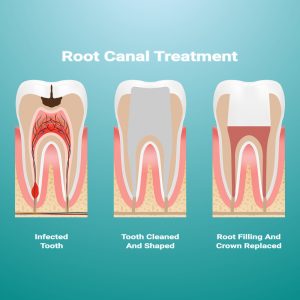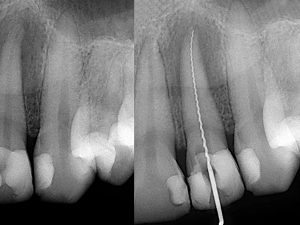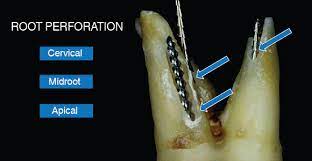What are the Hardest Teeth to do Root Canals on?
Introduction
Root canal treatment is a procedure that is often needed to save a damaged or infected tooth. It involves removing the pulp (the soft tissue inside the tooth) and replacing it with a filling material. While this procedure is routine for most dentists, there are some teeth that are more challenging to work on than others. In this article, we will discuss the hardest teeth to do root canals on.

The Anatomy of Teeth
Before we dive into the details of the hardest teeth to do root canals on, it is essential to understand the anatomy of teeth. Teeth consist of different layers, including enamel, dentin, and pulp. Enamel is the hard, outer layer of the tooth, and dentin is the softer layer beneath it. The pulp is the innermost layer of the tooth, which contains nerves and blood vessels.
The Hardest Teeth to do Root Canals on
Molars
Molars are the teeth located at the back of the mouth and are the most challenging teeth to do root canals on. They have multiple roots, which can make it challenging to remove all the infected or damaged tissue. Additionally, the roots of molars can be curved or twisted, making it more difficult to clean them thoroughly.
Premolars
Premolars are located between the canines and molars and are also challenging to do root canals on. They have a complex root system with multiple canals, making it challenging to remove all the infected or damaged tissue. Moreover, the canals in premolars can be very narrow, making it difficult for the dentist to access and clean them.
Incisors
Incisors are the front teeth and are generally easier to do root canals on than molars and premolars. However, they can still be challenging if they have curved or narrow canals, making it difficult to clean them thoroughly.

Why Are Some Teeth Harder to do Root Canals on Than Others?
There are several factors that can make some teeth harder to do root canals on than others. These include:
Number of canals: Teeth with multiple canals, such as molars and premolars, can be more challenging to do root canals on because it can be difficult to remove all the infected or damaged tissue from each canal.
Curved or narrow canals: Teeth with curved or narrow canals can be more challenging to clean thoroughly during a root canal procedure.
Access: Teeth that are harder to reach, such as those in the back of the mouth, can be more challenging to do root canals on.
Degree of decay or damage: Teeth that are severely decayed or damaged may require more extensive treatment, which can make the root canal procedure more challenging.
Conclusion
Root canal treatment is a routine procedure that can save a damaged or infected tooth. However, some teeth are more challenging to do root canals on than others. Molars, premolars, and incisors can all present different challenges for dentists performing root canals. Factors such as the number of canals, curved or narrow canals, access, and the degree of decay or damage can all contribute to the difficulty of the procedure. If you need a root canal, it is essential to find an experienced dentist who can handle any challenges that may arise during the procedure.





